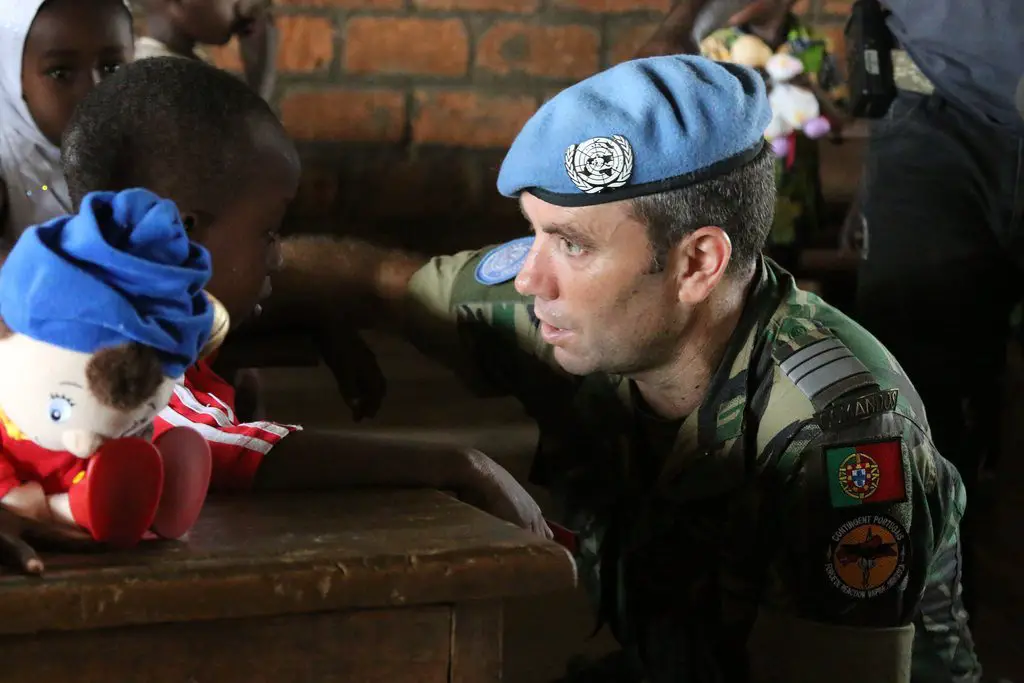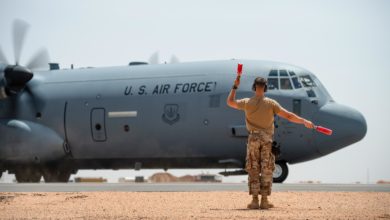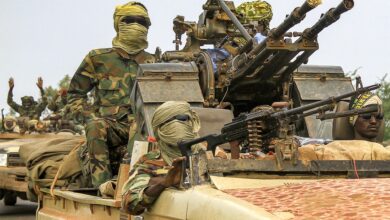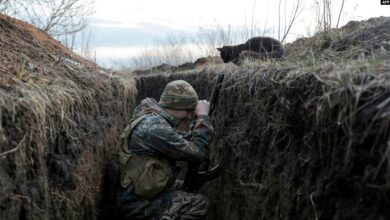Recent attacks on Portuguese peacekeepers in the Central African Republic, where they are part of a United Nations stabilization force, are indicative of the increased role the Iberian nation is playing in the African continent as it steps up its focus on fighting emerging terror threats.
Decades after Portugal formally ended its more than 500-year-old empire in Africa, the Portuguese military has returned in force. From Mali to Somalia, and now the Central African Republic the state of Portugal has been increasingly active in peacekeeping operations and counter-terrorism efforts in Africa.
A contingent of Portuguese peacekeepers came under fire on April 1 in the capital Bangui. The force had been deployed to PK5, a historically Muslim neighborhood in the Christian majority nation when it came under fire. That incident sparked further operations against armed groups in the neighborhood. In total the operation left as many as 21 civilians dead and injured scores including peacekeepers with the U.N.’s Minusca mission.
Portuguese paratroopers were again called upon to protect civilians during clashes in Bangui on May 1 in which at least 24 people died, and around 170 people were wounded.
MORE: UN operation to prevent militia moving toward Bangui continues
“It’s only a short flight from Portugal to Libya”
“We have to play an active role in contributing to the defense and security of Portugal, of NATO and part of that is working to ensure stability south of the Mediterranean,” said João Rebelo a member of Portugal’s parliament with the CDS – People’s Party. “I remind my colleagues often it’s only a short flight from Portugal to Libya.”
Rebelo is a member of the Portuguese delegation to the NATO parliamentary assembly and is active in other parliamentary defense initiatives.
Portugal’s re-engagement in African security has come with a cost. In June 2017, terrorists killed Paiva Benido, a Portuguese soldier who was amongst six victims of an attack on a Malian resort. Another Portuguese soldier was injured. The assailants were themselves killed in an exchange of gunfire with Malian security forces.
Jama’a Nusrat ul-Islam wa al-Muslimin – the Support Group for Islam and Muslims, known by the acronym JNIM – an umbrella group in the Sahel whose leaders have pledged bayah to al-Qaeda leader Ayman al-Zawahiri later claimed responsibility for the attack.
“Bendio’s death was a tragedy in particular because it occurred during a rest period and due to the fact that this was the first incident of this kind since a Portuguese soldier was killed from a mine in the Balkans,” Jorge Girao, a former Vice President of the Atlantic Treaty Association, told The Defense Post. “His death must be put in the perspective of say American or British losses in similar missions.”
The Portuguese contingent was in Mali as part of a European Union training mission in Bamako.
The death of 40-year-old Benido, a sergeant and father of two, is not without historical significance. Benido holds the dubious distinction of being the first Portuguese soldier killed in Africa as the result of enemy action since Portugal abandoned its African colonies in 1975, according to defence experts in Portugal who spoke to The Defense Post. His death is also significant because unlike many of its Western European neighbours, Portugal has never suffered a major terrorist attack.
“Portugal is a member of the Southern Quartet, a group of four NATO member states who are increasingly concerned about NATO’s Southern Flank,” said Amish Laxmidas, President of the Youth Atlantic Treaty Association of Portugal.
Laxmidas told The Defense Post that the Southern Quartet members are likely to coordinate further on the sidelines of the NATO summit in July.
The Portuguese city of Porto hosted a meeting of the Southern Quartet group in 2017. The Porto summit was the first of the group since 2012 and only the third ever formal meeting of the group.
The governments of Portugal, Italy, France and Spain increasingly a common concern about terrorism after the 3/11 attack – the bombing of Madrid commuter train that killed nearly 200 people on March 11, 2004. Following that attack, Article 42.7 was inserted into the European Union’s Lisbon Treaty which calls for a mutual defense response after a terrorist attack.
In November 2015, following the horrific terrorist attack in Paris, the French government invoked Article 42.7 for the first time and formally requested help from its European Union neighbors.
Responding to the call, Portugal agreed to deploy a Portuguese special forces contingent in the Central African Republic. The Portuguese force replaced a French unit as France sought to redeploy some of its military assets away from peacekeeping missions to better focus on counter-terrorism efforts at home.
#CAR PEACE Consolidation efforts. President Marcelo Rebelo de Sousa visits the Central African Republic. MINUSCA and the UN thank Portugal for its significant contribution. pic.twitter.com/D29LhpjQgH
— Parfait Onanga-Anyanga (@parfait_onanga) March 26, 2018
“Portugal sees France’s role in Africa as being at the vanguard of European security,” Bruno Cardoso Reis, an adviser to the Portuguese National Defence Institute and senior visiting fellow at King’s College London, told The Defense Post. “And there is a concern that failed states in the Sahel and beyond the Sahel could endanger European security.”
The memory of Portugal’s wars against Soviet-supported guerrillas left a distaste in the political establishment for African adventures after 1974. That began to change in 1993 when Portugal deployed a communications battalion in support of a U.N. mission in Mozambique. The Portuguese military conducted unilateral and independent peace missions in Guinea-Bissau and Angola in the 1990s.
There may be more such missions in the future.
Security in the former Portuguese colony of Mozambique is a growing international concern. Local Islamist groups in the province of Cabo Delgado have been conducting limited terrorist attacks against the government. It’s a region well-known in Portuguese military history and in Portuguese military circles. It was there in 1964 that Communist guerrillas crossed the border from Tanzania to attack Portuguese forces, an event which for Portugal marked the beginning of the Overseas War, Guerra do Ultramar, in earnest.












